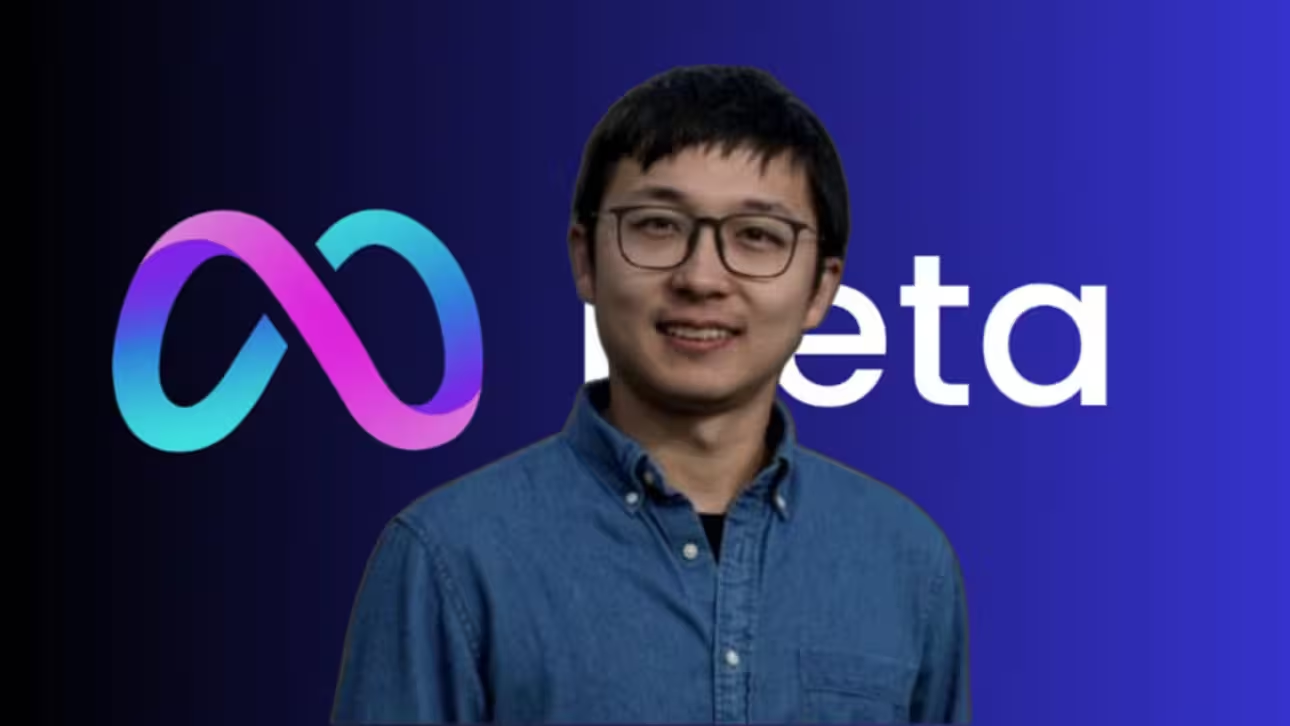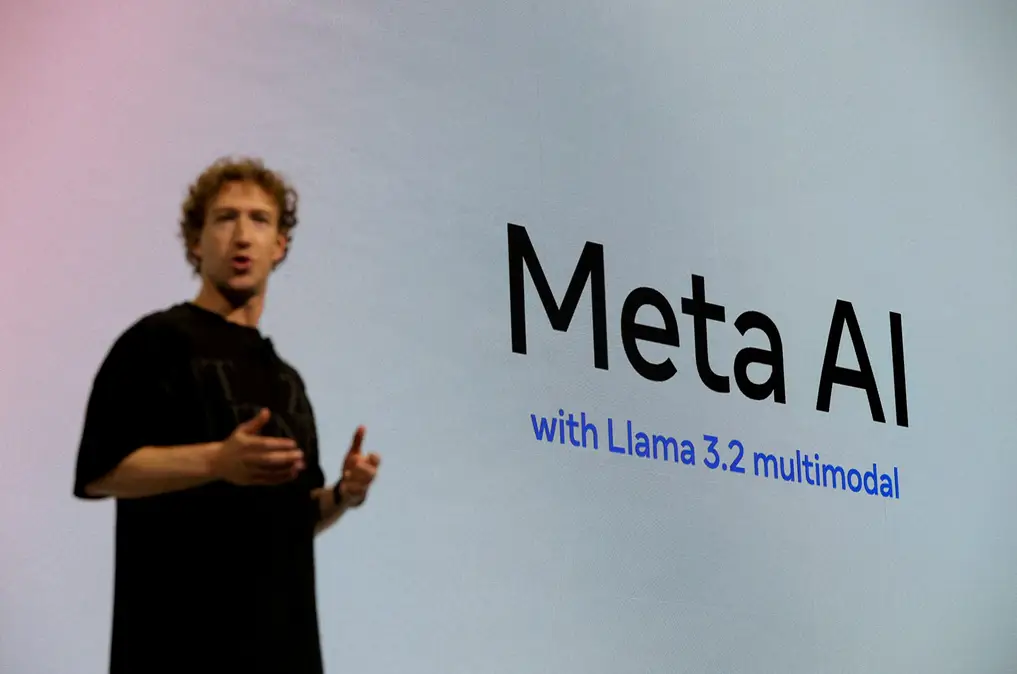Now Reading: Meta’s Boldest AI Play Yet: Shengjia Zhao Takes Charge of Superintelligence Lab
-
01
Meta’s Boldest AI Play Yet: Shengjia Zhao Takes Charge of Superintelligence Lab
Meta’s Boldest AI Play Yet: Shengjia Zhao Takes Charge of Superintelligence Lab

Meta has appointed ChatGPT co-creator Shengjia Zhao as Chief Scientist of its Superintelligence Lab—escalating the AI talent war with OpenAI. This marks a pivotal moment in Meta’s multi-billion-dollar race to shape the future of artificial intelligence.
Shengjia Zhao Joins Meta: A Defining Moment in AI Leadership
In a move that sent shockwaves through the tech world, Meta CEO Mark Zuckerberg announced on July 26, 2025, that Shengjia Zhao one of the leading minds behind ChatGPT and OpenAI’s GPT-4 models will serve as Chief Scientist of Meta’s Superintelligence Lab.
“Shengjia is not just a researcher. He’s a visionary who has helped redefine the boundaries of machine learning,” Zuckerberg said during the announcement, emphasizing Zhao’s impact on the field.
A Strategic Power Play in the AI Talent War
Zhao’s appointment is more than a headline it’s a calculated strike in the escalating AI talent war. More importantly, it signals Meta’s growing appetite to lead in artificial general intelligence (AGI), a frontier where the company has long trailed behind rivals like OpenAI and DeepMind.
Who Is Shengjia Zhao and Why Does He Matter?
Zhao played a foundational role at OpenAI, co-authoring the original ChatGPT architecture and helping design GPT-4, the more efficient GPT-4.1, and the lightweight o3 model.
While GPT-4 made headlines for its massive scale, Zhao focused on practical deployments: reducing latency, boosting efficiency, and ensuring AI could function on consumer-grade hardware.
By 2024, Zhao’s research shifted toward on-device optimization creating compressed models capable of running in real-time on AR devices, wearables, and edge hardware. His signature? Balancing power with performance.
“He built models that could scale down without losing their smarts,” said a former OpenAI colleague. “That’s rare.”

Inside Meta’s Superintelligence Lab: The New AI Frontier
Now, Zhao steps into a role that places him in charge of one of Meta’s most ambitious bets to date: the Superintelligence Lab. Based in Menlo Park with active teams in Toronto and Zurich the lab is Meta’s answer to OpenAI’s AGI pursuit.
Currently, projects in development include:
- Language-vision hybrid agents that reason across formats
- Memory-efficient, personalized AI assistants
- Multimodal systems with persistent learning across sessions
Crucially, this is no mere research vanity project—it serves as Meta’s core platform for integrating sophisticated AI capabilities into products like WhatsApp and AR glasses.
Meta’s $12B AI Spend—and the Growing Arms Race
According to Meta’s latest investor report, the company poured over $12.2 billion into AI R&D and infrastructure in 2024. That spend includes:
- Acquiring AI startups in the edge inference space
- Building custom AI chips for mobile inference
- Hiring top-tier talent from OpenAI, DeepMind, and Anthropic
Clearly, Zhao’s hiring isn’t an isolated event. It’s part of Meta’s aggressive recruitment strategy. In Q2 alone, the company added more than 70 AI engineers from institutions like Stanford, MIT, and Carnegie Mellon.
Notably, Wall Street noticed. Meta stock rose 1.8% the day Zhao’s hiring was confirmed.

Zhao’s Mission: Build AI That Scales Responsibly
Zhao has publicly stated that his focus will be on building AI that is:
- Accessible – Lightweight enough to run on everyday devices
- Ethical – Auditable, explainable, and inclusive
- Energy conscious – Built for real-world power constraints
Already, he’s begun reshaping Meta’s internal approach. One major initiative: all future large language models must pass power and bias audits before deployment.
“Bigger isn’t better if it can’t scale ethically,” Zhao wrote in an internal memo.
GPT-4.1 and o3: Zhao’s Legacy Models
Although GPT-4.1 and the o3 model may not have had the media buzz of their predecessors, under the hood, they were breakthroughs:
- Up to 40% less power consumption than GPT-4
- Latency improvements under 200 milliseconds
- Designed to run offline on mixed-reality headsets and mobile chips
As a result, these optimizations fit neatly with Meta’s push for AR powered assistants and real time AI tools inside its ecosystem.
Industry Fallout: OpenAI, Google, and Amazon Respond
Zhao’s defection triggered a wave of industry reactions. In response:
- OpenAI offered equity bumps and retention bonuses to staff
- Google DeepMind expanded its Canada and UK research hubs
- Amazon ramped hiring for its AGI division with a new $500M budget
- Nvidia announced new developer tools aimed at edge AI optimization
Clearly, this isn’t just Meta hiring a top name it’s a redrawing of the AI battlefield.

FAQs
To lead its push toward AGI with efficient, scalable, and ethical AI building on Zhao’s experience designing cutting edge models at OpenAI.
He’s leading the Superintelligence Lab, overseeing next-gen models and their deployment into Meta’s apps and devices.
It increases pressure across Big Tech to retain talent and accelerate AGI timelines.
His ability to balance model performance with real-world deployment needs especially in GPT-4.1 and o3.
With Zhao’s hiring and a $12B investment, Meta is clearly closing the gap and signaling it won’t play second fiddle in AI.
Final Take: Meta Is Betting Big on Brains, Not Just Models
Zhao’s move to Meta marks more than just a talent acquisition it signals a pivotal shift in AI strategy. Ultimately, Meta is betting that great AI arises not only from raw computing power, but also from the experts who know how to wield that power wisely. With Shengjia Zhao on board, the company is sending a clear message: the future of AI will be defined by both innovation and integrity.

Miles Harrington is an American journalist specializing in movies, TV series, and sports. With years of industry experience, he delivers sharp reviews, cultural insights, and engaging commentary that connect fans with the stories they love.
Stay Informed With the Latest & Most Important News
Previous Post
Next Post
-
 01Happy Gilmore 2: Your Complete Guide to the Golf Comedy Sequel
01Happy Gilmore 2: Your Complete Guide to the Golf Comedy Sequel -
 02Joe Root’s Test Runs: England’s Batting Genius in Focus
02Joe Root’s Test Runs: England’s Batting Genius in Focus -
 03The Bad Guys 2 (2025): Everything We Know So Far
03The Bad Guys 2 (2025): Everything We Know So Far -
 04RTX 50 Series Unleashed: Next-Gen Gaming Power Awaits!
04RTX 50 Series Unleashed: Next-Gen Gaming Power Awaits! -
 05Demon Slayer: Kimetsu no Yaiba The Movie: Infinity Castle Tickets – Your Guide to the Epic Anime Event
05Demon Slayer: Kimetsu no Yaiba The Movie: Infinity Castle Tickets – Your Guide to the Epic Anime Event -
 06The Naked Gun 2025: What to Know About the Comeback Comedy Starring Liam Neeson
06The Naked Gun 2025: What to Know About the Comeback Comedy Starring Liam Neeson -
 07Sensory Clothing for Kids: What Every Parent Needs to Know
07Sensory Clothing for Kids: What Every Parent Needs to Know














